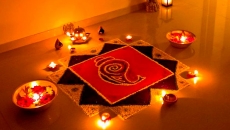The beginning of the year is a time of self-reflection, and seasonally, this can often tie into themes of romantic love. For many singles, this season brings an opportunity to examine recurring patterns in their romantic lives. At the heart of these patterns often lies a pivotal factor: self-worth. In simpler terms, how we view and value ourselves profoundly influences the relationships we form and the love we accept.
To understand self-worth in connection to our relationships, it is essential to start from the roots. Our childhood heavily influences the beliefs we form about love and worthiness, impacting the relationships we attract. Certified Hypnotherapist and Rapid Transformational Therapist (RTT) Meghna Sharma notes that childhood is where our subconscious blueprint for love is formed. When a child grows up in an environment where love feels conditional or unavailable, they may internalize beliefs such as “I have to earn love.” These beliefs often attract partners who recreate the same feelings of neglect or rejection, reinforcing familiar yet painful dynamics.

Sharma highlights that childhood wounds act as an emotional blueprint for our adult relationships. If you grew up feeling dismissed, neglected, or unworthy, those emotions become your subconscious “normal.” As a result, you’re likely to gravitate toward partners who recreate those same feelings because the mind is drawn to what it knows, even when it’s painful.
This is why someone who felt ignored might attract emotionally unavailable partners or why someone who had to please to earn love might end up in one-sided relationships. Beliefs about love and self-worth, often formed early in life, operate unconsciously, driving our behavior in relationships. For instance, someone who believes “I’m only valued for what I provide” may overextend themselves, becoming a giver who attracts takers. These beliefs can lead to sabotaging behaviors, such as settling for less, avoiding vulnerability, or pushing people away.
Transformation begins by identifying the root of these beliefs—through self-reflection, therapy, or RTT—and consciously replacing them with empowering truths like “I am enough” or “I deserve mutual love and respect.” Breaking free begins with awareness, which entails identifying patterns and understanding how they connect to your past. Once you’re aware, Sharma states that you can consciously choose new beliefs and behaviors that align with the love and respect you deserve. Tools like therapy, mindfulness, and journaling can help uncover and rewire these limiting patterns.
An expert in the field, Sharma is the founder of ILUMA Therapy, bridging the realms of subconscious healing and conscious creation. She describes RTT as a powerful modality that bypasses the conscious mind to access the subconscious, where 95% of our thoughts and behaviors originate. “Many clients don’t even consciously remember the events that shaped their beliefs. In RTT sessions, clients often uncover surprising root causes, like feeling unwanted in the womb or being told as a child that they were a 'mistake.'" By revisiting these pivotal moments, RTT helps close emotional loops and neutralizes the pain associated with those memories. It then rewires the subconscious to adopt new beliefs, such as “I am worthy of love,” and installs a healthier blueprint for relationships.” Unlike surface-level approaches, RTT creates lasting change by addressing the root cause of the issue, often within 3-6 sessions.
When you put in the work, Sharma explains that prioritizing emotional safety transforms how you choose partners.
Seeking emotional safety means prioritizing relationships that bring stability, trust, and peace rather than ones driven by drama or chaos. Many confuse intensity ("fireworks") with love, but these relationships often leave us feeling anxious, insecure, or unseen. Emotional safety, on the other hand, feels like a “fireplace”—warm, steady, and calming to the nervous system. When you value emotional safety, you shift from chasing validation to seeking partnership. This transforms your relationship choices by aligning them with your deeper needs for connection, respect, and love.
For singles struggling with self-doubt, Sharma outlines reflective exercises to help shift beliefs and attract healthier relationships, centered around journaling to uncover patterns through four profound questions:
- What emotions have been most dominant in my past relationships?
- How do these emotions mirror what I experienced in my family growing up?
- What beliefs about myself and love might I have formed from these experiences?
- If I could describe my ideal relationship in terms of how I want to feel, what would those feelings be?
It’s all about mustering up the courage to take that first step, and the ripple effect can be felt beyond just the individual. Sharma reinforces that healing yourself breaks the cycle of passing down generational wounds. Healing enables parents to model healthier dynamics, teaching children self-respect, emotional resilience, and the importance of boundaries. When you embody self-worth and emotional health, you naturally pass these qualities on to your children.
Most importantly, healing allows you to attract partners who reflect your energy, approaching relationships from a place of wholeness!






